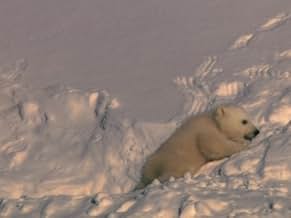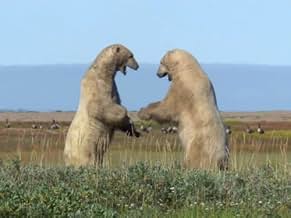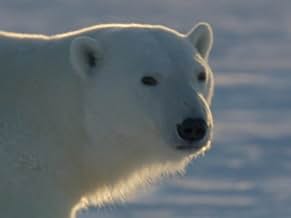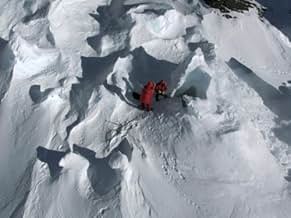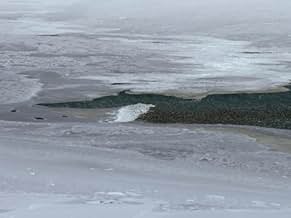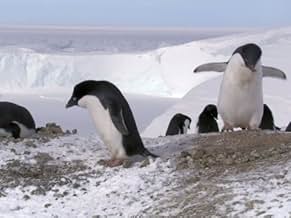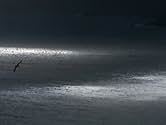La série documentaire se focalise sur la vie et l'environnement dans l'Arctique et l'Antarctique.La série documentaire se focalise sur la vie et l'environnement dans l'Arctique et l'Antarctique.La série documentaire se focalise sur la vie et l'environnement dans l'Arctique et l'Antarctique.
- Récompensé par 4 Primetime Emmys
- 13 victoires et 9 nominations au total
Parcourir les épisodes
Résumé
Reviewers say 'Frozen Planet' is acclaimed for its breathtaking cinematography and David Attenborough's engaging narration. The series excels in detailing animal behavior and adaptation, offering both educational and emotional value. Behind-the-scenes segments enhance appreciation for the production team's efforts in extreme environments. However, some note repetitive content and a slight focus on human impact, though these are minor compared to the series' overall quality.
Avis à la une
If you decide to watch "Frozen Planet", you might want to think twice if you are squeamish or if you're watching with small children. This is because it depicts nature in the raw...and that sometimes means footage of animals killing each other or dying from exposure. I personally prefer this over an overly sanitized program...but it's best you know and understand this so you can make the appropriate choice.
The film is about both the Arctic and Antarctica and most of the episodes consist of showing the same season in each region. So, for example, the summer in the Arctic would be June-September but in Antarctica you are seeing its summer from December-March. During the course of the episodes you see the usual amazing footage you see in the other recent "Earth" documentaries with David Attenborough...and you often marvel at the people who went to such lengths to get such perfect film. Pretty amazing...and marvelous on a large television.
I think this is a nearly perfect show. My only complaint, and it's a minor one, is that some of the material is repetitive and really noticable if you are binging on the show. I honestly feel they could have edited out an episode or two to make it much more compact.
The film is about both the Arctic and Antarctica and most of the episodes consist of showing the same season in each region. So, for example, the summer in the Arctic would be June-September but in Antarctica you are seeing its summer from December-March. During the course of the episodes you see the usual amazing footage you see in the other recent "Earth" documentaries with David Attenborough...and you often marvel at the people who went to such lengths to get such perfect film. Pretty amazing...and marvelous on a large television.
I think this is a nearly perfect show. My only complaint, and it's a minor one, is that some of the material is repetitive and really noticable if you are binging on the show. I honestly feel they could have edited out an episode or two to make it much more compact.
Looking spritely as ever David Attenborough returned to the BBC with yet another brilliant documentary series, this time focusing on the seasons across the polar regions at either end of the earth. Spread over six parts, each season gets an episode followed by one on the lives of human in the regions and then an episode on how the regions have changed over time (and temperature). I'm not really a regular viewer of shows such as this, but I do come out for the big guns of the genre and the Attenborough/BBC names tend to be of the highest quality (plus the clip of the criminal penguin that was released as a promo convinced me to watch).
It is hard to fault Frozen Planet for what it does because it is technically impressive and stunningly filmed but yet has more than enough content and specifics to prevent the show being taken as just an excuse to show off your HD TV or have visual wallpaper for an hour (although having said that, it performs that task too and needs to be seen in HD). Although it covers a lot of ground, the show perfectly captures a sense of the extremes and of the remarkable forms of life that live in and around them, some we have seen before and some we have not and I found it as engaging to see familiar creatures as I did to learn of caterpillars that freeze completely solid only to thaw out and continue living when the ice retreats. As is to be expected, some of the presentation is a touch anthropomorphised but mostly the show is pretty honest about the chances of survival and is not afraid to show us the fates of creatures who are simply unlucky or misjudge their situation. Although one tries to watch it as a documentary it is hard not to feel something when you've just watched a baby bird survive a very rough landing on its first flight, only to be grabbed by a passing fox! The final two episodes are weaker by comparison because there is less of the animals and more of the human condition and bigger picture, but they are both fascinating. I came to the fifth episode not expecting much but the study of select communities did impress – not so much those that go there with money and technology, but those that hunt and live there; the shot of the man on a rope harvesting eggs on a cliff-face was a high point. The final episode just about avoids politics by mostly just showing things and leaving the rest to the viewer, but it was still an unusual part of the show compared to other series.
As always the filming is incredible and I do enjoy the little snippets at the end of each episode where we see how they were done and the frustrations and challenges of trying to get these great shots. The results are brilliant though, whether it is a camera dropped into a creature's burrowed hole, underwater shots of whales hunting as a pack or a hunt taken from far above in a helicopter; all of them are visually impressive and often breath-taking. The degree of access and intimacy is equally impressive and it is this that really makes the show as the viewer really feels part of an environment that the vast majority of us will never see or experience for ourselves. Over all this Attenborough's familiar tones inform and entertain – on top of his genre as ever but yet modest to the end.
Frozen Planet was a great series, really hard to fault as it delivers across the board for the vast majority of its run.
It is hard to fault Frozen Planet for what it does because it is technically impressive and stunningly filmed but yet has more than enough content and specifics to prevent the show being taken as just an excuse to show off your HD TV or have visual wallpaper for an hour (although having said that, it performs that task too and needs to be seen in HD). Although it covers a lot of ground, the show perfectly captures a sense of the extremes and of the remarkable forms of life that live in and around them, some we have seen before and some we have not and I found it as engaging to see familiar creatures as I did to learn of caterpillars that freeze completely solid only to thaw out and continue living when the ice retreats. As is to be expected, some of the presentation is a touch anthropomorphised but mostly the show is pretty honest about the chances of survival and is not afraid to show us the fates of creatures who are simply unlucky or misjudge their situation. Although one tries to watch it as a documentary it is hard not to feel something when you've just watched a baby bird survive a very rough landing on its first flight, only to be grabbed by a passing fox! The final two episodes are weaker by comparison because there is less of the animals and more of the human condition and bigger picture, but they are both fascinating. I came to the fifth episode not expecting much but the study of select communities did impress – not so much those that go there with money and technology, but those that hunt and live there; the shot of the man on a rope harvesting eggs on a cliff-face was a high point. The final episode just about avoids politics by mostly just showing things and leaving the rest to the viewer, but it was still an unusual part of the show compared to other series.
As always the filming is incredible and I do enjoy the little snippets at the end of each episode where we see how they were done and the frustrations and challenges of trying to get these great shots. The results are brilliant though, whether it is a camera dropped into a creature's burrowed hole, underwater shots of whales hunting as a pack or a hunt taken from far above in a helicopter; all of them are visually impressive and often breath-taking. The degree of access and intimacy is equally impressive and it is this that really makes the show as the viewer really feels part of an environment that the vast majority of us will never see or experience for ourselves. Over all this Attenborough's familiar tones inform and entertain – on top of his genre as ever but yet modest to the end.
Frozen Planet was a great series, really hard to fault as it delivers across the board for the vast majority of its run.
This is a wonderful documentary covering the Arctic and Antarctica sections of our planet. You see these two regions through 4 seasons, through the eyes of it's inhabitants (mammals, birds, fish and humans). It captures the beauty, harsh weather and life in all of its glory and challenges. We get to see a thorough glimpse in life of all key animals. The 4 season covers, love, birth, growth, survival, death. We also get to see the life of human beings who live around Arctic circle. It is a tough and simple life.
The show is very informative and very entertaining. Highly recommended. If you love nature or want to know more about this planet, check this out. I am now sifting through IMDb to find more such shows.
The show is very informative and very entertaining. Highly recommended. If you love nature or want to know more about this planet, check this out. I am now sifting through IMDb to find more such shows.
10fikamugg
To describe all the beautiful footage in this documentary is simply not possible. It's easily the best i have ever seen, even better than BBCs "planet earth" which was unique because of its big budget and extended production time (16M £, 5years). It's probable that production paid off in terms of skill and it certainly comes to show here in BBCs next effort when the mysteries and beauty of our planets frozen worlds is on the agenda.
More than anything else this production is a profound statement on how precious and unique our planet is and how immensely important it is that human impact on fragile ecosystems is kept to a minimum.
Richard Attenbourough is, as we all know by now, the perfect narrator. His deep interest and knowledge in natural history is apparent, adding a pleasant edge to this marvelous achievement.
More than anything else this production is a profound statement on how precious and unique our planet is and how immensely important it is that human impact on fragile ecosystems is kept to a minimum.
Richard Attenbourough is, as we all know by now, the perfect narrator. His deep interest and knowledge in natural history is apparent, adding a pleasant edge to this marvelous achievement.
True genius. It makes standing in the poles, what' really seems like an exhilarating experience feel it's being done by yourself. With polar bears and penguins in the joy of spring, the summertime with less blues, autumn filled with the excitement of the mating season, the hard land that is winter, and then in the conclusion, you have people living there and you can see them. This is a classic series with brilliant moments all through it. It won 4 Emmys because it deserved them more than anything else in 2009. Madagascar- one of Attenborough's best works, the amazing documentary Ocean Giants and the classic Human Planet. Frozen Planet beat all them because some of the amazing stuff, as well as educational (not something I look for in Docos) and exciting (this one is exciting, animal-action-packed series) but also never filmed before. Nobody had filmed at Antarctic volcanoes or the Russian arctic before. Migrating eider ducks was new and never done before. That is the magic behind a classic series. Do yourself a favour if you haven't already. Watch all 7 parts. Won't waste your time. You could do an episode a day and be finished with it in a week. Come on. It won't wreck your life or anything. C'mon.
Le saviez-vous
- Anecdotes44 cinematographers to shoot the whole documentary.
- ConnexionsEdited into Universum: Eisige Welten - Das Reich der Kälte im Bann des Klimas (2017)
Meilleurs choix
Connectez-vous pour évaluer et suivre la liste de favoris afin de recevoir des recommandations personnalisées
- How many seasons does Frozen Planet have?Alimenté par Alexa
Détails
- Date de sortie
- Pays d’origine
- Site officiel
- Langues
- Aussi connu sous le nom de
- Frozen Planet
- Lieux de tournage
- Sociétés de production
- Voir plus de crédits d'entreprise sur IMDbPro
- Durée1 heure
- Couleur
- Mixage
- Rapport de forme
- 16:9 HD
Contribuer à cette page
Suggérer une modification ou ajouter du contenu manquant

Lacune principale
What is the Brazilian Portuguese language plot outline for Terres de glace (2011)?
Répondre





